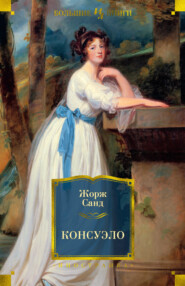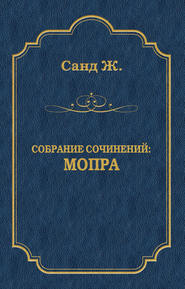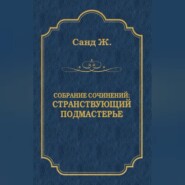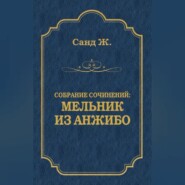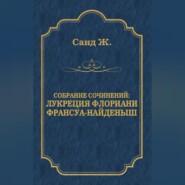По всем вопросам обращайтесь на: info@litportal.ru
(©) 2003-2024.
✖
The George Sand-Gustave Flaubert Letters
Настройки чтения
Размер шрифта
Высота строк
Поля
Croisset, Wednesday evening…1870
What has become of you, dear master, of you and yours? As for me, I am disheartened, distressed by the folly of my compatriots. The hopeless barbarism of humanity fills me with a black melancholy. That enthusiasm which has no intelligent motive makes me want to die, so as not to see it any longer.
The good Frenchman wants to fight: (1) because he thinks he is provoked to it by Prussia; (2) because the natural condition of man is savagery; (3) because war in itself contains a mystic element which enraptures crowds.
Have we returned to the wars of races? I fear so. The terrible butchery which is being prepared has not even a pretext. It is the desire to fight for the sake of fighting.
I bewail the destroyed bridges, the staved-in tunnels, all this human labor lost, in short a negation so radical.
The Congress of Peace is wrong at present. Civilization seems to me far off. Hobbes was right: Homo homini lupus.
I have begun Saint-Antoine, and it would go perhaps rather well, if
I did not think of the war. And you?
The bourgeois here cannot contain himself. He thinks Prussia was too insolent and wants to "avenge himself." Did you see that a gentleman has proposed in the Chamber the pillage of the duchy of Baden! Ah! why can't I live among the Bedouins!
CLXXI. TO GUSTAVE FLAUBERT, at Croisset
Nohant, 26 July, 1870
I think this war is infamous; that authorized Marseillaise, a sacrilege. Men are ferocious and conceited brutes; we are in the HALF AS MUCH of Pascal; when will come the MORE THAN EVER!
It is between 40 and 45 degrees IN THE SHADE here. They are burning the forests; another barbarous stupidity! The wolves come and walk into our court, and we chase them away at night, Maurice with a revolver and I with a lantern. The trees are losing their leaves and perhaps their lives. Water for drinking is becoming scarce; the harvests are almost nothing; but we have war, what luck!
Farming is going to nought, famine threatens, poverty is lurking about while waiting to transform itself into Jacquerie; but we shall fight with the Prussians. Malbrough s'en va-t-en guerre!
You said rightly that in order to work, a certain lightness was needed; where is it to be found in these accursed times?
Happily, we have no one ill at our house. When I see Maurice and Lina acting, Aurore and Gabrielle playing, I do not dare to complain for fear of losing all.
I love you, my dear old friend, we all love you.
Your troubadour,
G. Sand
CLXXII. TO GEORGE SAND
Croisset, Wednesday, 3 August, 1870
What! dear master, you too are demoralized, sad? What will become of the weak souls?
As for me, my heart is oppressed in a way that astonishes me, and I wallow in a bottomless melancholy, in spite of work, in spite of the good Saint-Antoine who ought to distract me. Is it the consequence of my repeated afflictions? Perhaps. But the war is a good deal responsible for it. I think that we are getting into the dark.
Behold then, the NATURAL MAN. Make theories now! Boast the progress, the enlightenment and the good sense of the masses, and the gentleness of the French people! I assure you that anyone here who ventured to preach peace would get himself murdered. Whatever happens, we have been set back for a long time to come.
Are the wars between races perhaps going to begin again? One will see, before a century passes, several millions of men kill one another in one engagement. All the East against all Europe, the old world against the new! Why not? Great united works like the Suez Canal are, perhaps, under another form, outlines and preparations for these monstrous conflicts of which we have no idea.
Is Prussia perhaps going to have a great drubbing which entered into the schemes of Providence for reestablishing European equilibrium? That country was tending to be hypertrophied like France under Louis XIV and Napoleon. The other organs are inconvenienced by it. Thence universal trouble. Would formidable bleedings be useful?
Ah! we intellectuals! Humanity is far from our ideal! and our immense error, our fatal error, is to think it like us and to want to treat it accordingly.
The reverence, the fetichism, that they have for universal suffrage revolts me more than the infallibility of the pope (which has just delightfully missed its point, by the way). Do you think that if France, instead of being governed on the whole by the crowd, were in the power of the mandarins, we should be where we are now? If, instead of having wished to enlighten the lower classes, we had busied ourselves with instructing the higher, we should not have seen M. de Keratry proposing the pillage of the duchy of Baden, a measure that the public finds very proper!
Are you studying Prudhomme now? He is gigantic! He admires Musset's
Rhin, and asks if Musset has done anything else. Here you have
Musset accepted as the national poet and ousting Beranger! What immense buffoonery is…everything! But a not at all gay buffoonery.
Misery is very evident. Everyone is in want, beginning with myself! But perhaps we were too accustomed to comfort and tranquillity. We buried ourselves in material things. We must return to the great tradition, hold no longer to life, to happiness, to money nor to anything; be what our grandfathers were, light, effervescing people.
Once men passed their life in starving. The same prospect is on the horizon. What you tell me about poor Nohant is terrible. The country has suffered less here than with you.
CLXXIII. TO GUSTAVE FLAUBERT, at Croisset.
Nohant, 8 August, 1870
Are you in Paris in the midst of all this torment? What a lesson the people are getting who want absolute masters! France and Prussia are cutting each other's throats for reasons that they don't understand! Here we are in the midst of great disasters, and what tears at the end of it all, even should we be the victors! One sees nothing but poor peasants mourning for their children who are leaving.
The mobilization takes away those who were left with us and how they are being treated to begin with! What disorder, what disarray in that military administration, which absorbed everything and had to swallow up everything! Is this horrible experience going to prove to the world that warfare ought to be suppressed or that civilization has to perish?
We have reached the point this evening of knowing that we are beaten. Perhaps tomorrow we shall know that we have beaten, and what will there be good or useful from one or the other?
It has rained here at last, a horrible storm which destroyed everything.
The peasant is working and ploughing his fields; digging hard always, sad or gay. He is imbecile, people say; no, he is a child in prosperity, a man in disaster, more of a man than we who complain; he says nothing, and while people are killing, he is sowing, repairing continually on one side what they are destroying from the other. We are going to try to do as he, and to hunt a bubbling spring fifty or a hundred yards below ground. The engineer is here, and Maurice is explaining to him the geology of the soil.
We are trying to dig into the bowels of the earth to forget all that is going on above it. But we cannot distract ourselves from this terror!
Write me where you are; I am sending this to you on the day agreed upon to rue Murillo. We love you, and we all embrace you.
G. Sand
Nohant, Sunday evening.
CLXXIV. TO GEORGE SAND.
Croisset, Wednesday, 1870
I got to Paris on Monday, and I left it again on Wednesday. Now I know the Parisian to the very bottom, and I have excused in my heart those most ferocious politics of 1793. Now, I understand them! What imbecility! what ignorance! what presumption! My compatriots make me want to vomit. They are fit to be put in the same sack with Isidore!
This people deserves to be chastised, and I fear that it will be.
It is impossible for me to read anything whatever, still more so to write anything. I spend my time like everyone else in waiting for news. Ah! if I did not have my mother, I would already be gone!
CLXXV. TO GUSTAVE FLAUBERT, at Croisset.






